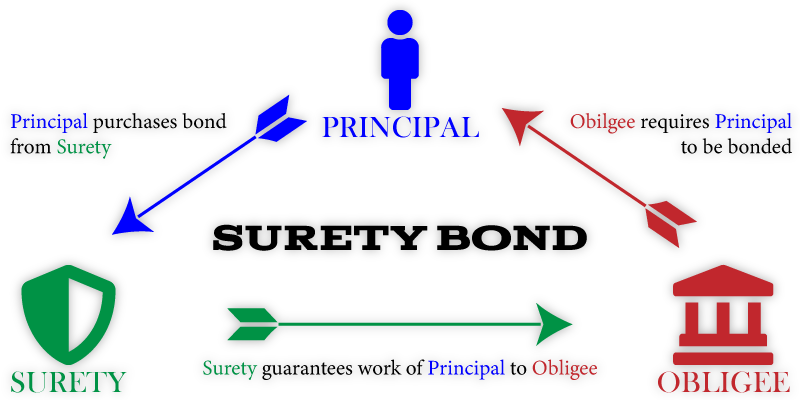The Role of Bid Bonds in Mitigating Financial Risks in Contracting
The Role of Bid Bonds in Mitigating Financial Risks in Contracting
Blog Article
Comprehending the Significance of Bid Bonds in Construction Tasks
In the world of building jobs, the duty of bid bonds can not be overstated. For contractors, securing bid bonds is just as considerable as it improves their credibility and market standing.
What Are Bid Bonds?
In construction projects, bid bonds are frequently an important part of the bidding process. A bid bond is a sort of surety bond that provides financial assurance to task proprietors that the contractor will honor its quote and, if awarded the contract, will perform the agreement according to the terms detailed. Essentially, quote bonds act as a guard, making sure that contractors send major and affordable bids.
The key objective of a proposal bond is to safeguard the job owner from prospective economic losses that might occur if the winning bidder fails to begin the job. This security is critical in maintaining the honesty of the bidding procedure, as it dissuades pointless or non-committal quotes. Quote bonds generally include three events: the principal (the professional), the obligee (the project owner), and the surety (the entity releasing the bond)
The surety business evaluates the service provider's monetary stability and capability to complete the task effectively prior to issuing a quote bond. This assessment process includes an extra layer of scrutiny, additional making sure that only certified and dependable professionals take part in the bidding process. As a result, proposal bonds play a crucial duty in fostering trust and integrity in building and construction project bidding.

Exactly How Bid Bonds Work
Comprehending the technicians of quote bonds calls for an admiration of their duty in making sure a reliable and competitive bidding process. A quote bond is a kind of surety bond that contractors submit along with their quote propositions for building projects. It works as a monetary assurance to the job proprietor that the contractor is significant, qualified, and going to embark on the job at the proposal cost.
The procedure starts with the specialist approaching a surety company to safeguard a proposal bond. Bid Bonds. The surety company evaluates the service provider's monetary security, experience, and track record prior to providing the bond. As soon as acquired, the bid bond is sent with the service provider's bid to the job proprietor
If the professional is awarded the task but fails to enter into the agreement or supply the required performance and repayment bonds, the task owner can claim the bid bond. The surety company then compensates the job proprietor up to the bond's chastening amount, usually a percentage of the proposal quantity, generally between 5% and 20%.
This system prevents unimportant quotes and ensures that just certified specialists join the bidding process, thus protecting the rate of interests of all stakeholders involved.
Benefits for Task Proprietors
For task proprietors, bid bonds provide a variety of considerable advantages that improve the overall effectiveness and integrity of the building bidding procedure. Mostly, proposal bonds make certain that only serious and economically steady contractors participate in the bidding. This see this website pre-qualification procedure minimizes the probability of job delays or terminations triggered by professionals that are incapable to satisfy their contractual obligations.
In addition, proposal bonds offer economic security to project proprietors. The quote bond compensates the owner for the difference between the skipping professional's bid and the following lowest proposal if the winning bidder fails to execute the agreement. This economic guard makes sure that the project proprietor does not sustain unanticipated costs due to contractor non-performance.
Bid bonds also contribute to maintaining a competitive bidding process setting. Understanding that a proposal bond is called for, service providers are most likely to send practical and exact bids, which consequently aids job proprietors receive reasonable market value for their tasks. This one-upmanship is vital in handling the project's budget plan efficiently.
Furthermore, the demand of a quote bond emphasizes the task owner's commitment to a transparent and organized bidding procedure, therefore improving the reputation of the job and attracting trusted specialists.
Benefits for Contractors

Bid bonds also aid contractors handle their danger. Should a service provider be not able to recognize their proposal, the bond makes sure that the task owner is compensated, consequently shielding the professional from prospective economic penalties or legal conflicts. This can be especially advantageous in large-scale tasks where the risks are high.

Key Factors To Consider
When evaluating quote bonds in construction jobs, contractors need to very carefully take into consideration a number of crucial elements to ensure they are making educated choices - Bid Bonds. The monetary stability of the surety firm providing the proposal bond is important.
One more crucial consideration is the bid bond's expiration day and the duration for which it will certainly continue to be valid. This makes certain that the bond will certainly cover the entire bidding process and any type of prospective hold-ups. Contractors must additionally review the terms related to the proposal bond, including any type of indemnity contracts that could require payment to the guaranty in instance of a claim.
Lastly, specialists need to assess the lawful needs and laws regulating bid bonds in the task's jurisdiction. Conformity with local laws is necessary to stay clear of legal difficulties that might endanger the task. By thoroughly taking into consideration these aspects, specialists can much better browse the complexities of proposal bonds and protect go their rate of interests.
Verdict
In summary, bid bonds serve as a vital financial safeguard in building projects, shielding project proprietors from prospective losses due to non-fulfillment by winning bidders. Ultimately, the execution of bid bonds supports the successful implementation of building jobs by enhancing depend on and financial guarantee.
A bid bond is a kind of guaranty bond that gives monetary guarantee to task proprietors that the specialist will certainly recognize its bid and, if awarded the agreement, will certainly implement the agreement according to the terms described. A proposal bond is a type of surety bond that service providers send along with their bid proposals for building jobs. Once obtained, the proposal bond is sent with the specialist's proposal to the task proprietor.
If the winning prospective buyer stops working to perform the agreement, the proposal bond makes up the proprietor for the difference in between the defaulting contractor's bid and here the following least expensive bid. Understanding that a bid bond is called for, contractors are extra most likely to submit accurate and realistic bids, which in turn assists project owners obtain reasonable market prices for their projects.
Report this page